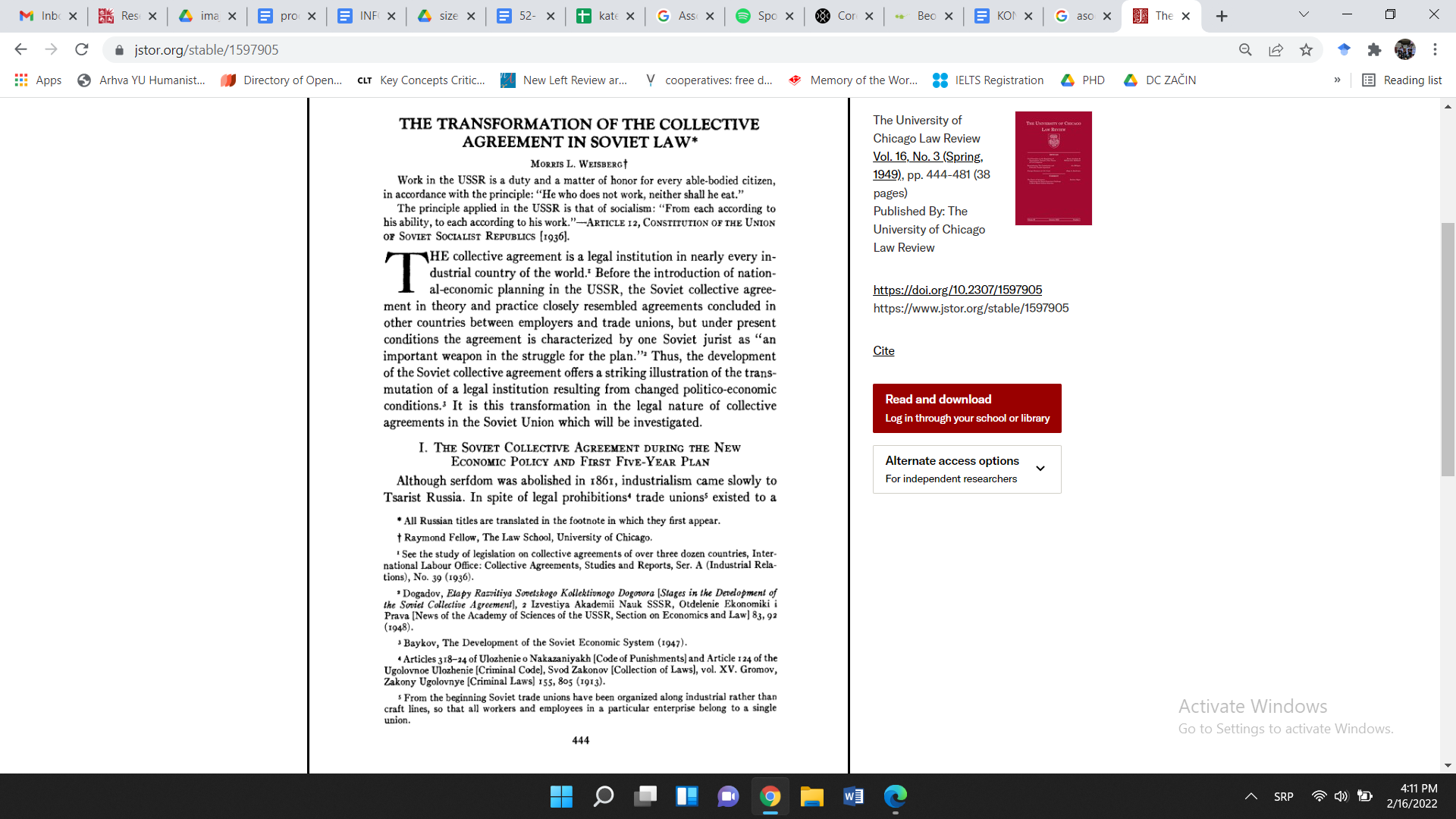 |
The Transformation of the Collective Agreement in Soviet Law Author(s): Morris L. Weisberg |
The collective agreement is a legal institution in nearly every industrial country of the world. Before the introduction of national economic planning in the USSR, the Soviet collective agreement in theory and practice closely resembled agreements concluded in other countries between employers and trade unions, but under present conditions the agreement is characterized by one Soviet jurist as "an important weapon in the struggle for the plan." Thus, the development of the Soviet collective agreement offers a striking illustration of the transmutation of a legal institution resulting from changed politico-economic conditions. It is this transformation in the legal nature of collective agreements in the Soviet Union which will be investigated.
Kolektivni ugovor je pravna institucija u skoro svakoj inindustrijskoj zemlja sveta.' Pre uvođenja nacije za ekonomsko planiranje u SSSR-u, sovjetski kolektivni ugovor u teoriji i praksi veoma je ličio na sporazume zaključene u drugim zemljama između poslodavaca i sindikata, ali u sadašnjim uslovima jedan sovjetski pravnik sporazum je okarakterisao kao „važno oružje u borbi za plan“. Dakle, razvoj sovjetskog kolektivnog ugovora nudi upečatljivu ilustraciju trans - mutacija pravne institucije koja je rezultat promenjenih političko-ekonomskih uslova. Upravo će se istraživati ova transformacija pravne prirode kolektivnih ugovora u Sovjetskom Savezu.
key words: authors/ Morris L. Weisberg, language/English, countries/Soviet Union, collective agreement, soviet law, five year plan, centrally planned economy, trade unions
ključne reči:: autori / Morris L. Weisberg, jezik / engleski, zemlje / Sovjetski savez, kolektivni ugovor, sovjetsko pravo, petogodišnji plan, centralno - planska privreda, sindikati










